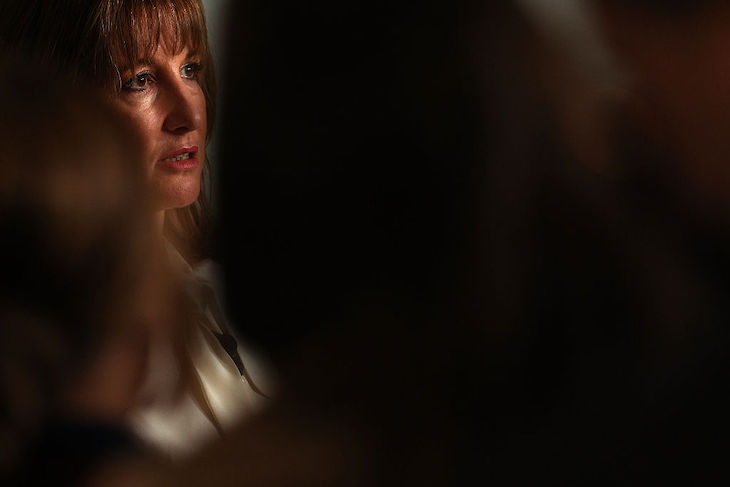After the frenzy of the Commons, comes the poring over the fine print. Rachel Reeves’s Budget is being studied across Westminster, following a chaotic lunchtime in which the OBR’s response was uploaded online an hour before her speech.
That speech was heavily pre-briefed, with few real surprises. Taxes were hiked by £26 billion – though not as much as last year’s £32 billion. The level of fiscal headroom has been doubled to more than £22 billion. Growth will be up this year from 1 per cent to 1.5 per cent – but down from earlier projections by 2029. ‘The Chancellor is relying heavily on tax rises towards the back end of the parliament,’ says the Institute for Fiscal Studies. More borrowing in the medium term, then tax hikes. Spend now, pay later: Reeves’s Klarna Budget.
More borrowing in the medium term, then tax hikes. Spend now, pay later: it’s Reeves’s Klarna Budget
For her Labour colleagues, there was approval at some of the measures. ‘You can tell it is a Labour Budget,’ said one MP shortly after her speech, approvingly. The hated two-child benefit cap has finally been lifted, at a cost of £3 billion. The loathing for this policy cannot be understated: a new Labour MP told me recently that a canvass of colleagues found only one backbencher who supported it ‘in principle.’
A further £9 billion has been spent on welfare and benefits: decisions that will hand 560,000 families an average of £5,310, according to the OBR. In her speech, Reeves name-checked multiple backbenchers: a sign of both her team’s outreach efforts and a reminder that the party’s fate is bound to this Budget.
The trade unions’ reaction is cautiously positive. Paul Nowak, the TUC general secretary, said ‘this government is starting to turn the page on that failed Tory era’ but that ‘we now need to see a relentless focus on affordability and making work pay.’ Reeves can point to a flurry of short-term tweaks to help with bills, including her plans to cover the cost of the government’s green energy policies. Household energy costs are expected to tumble by £150 a year for the average gas and electricity bill from next April. But Christina McAnea of Unison said ‘the government must go further and faster’ – while Unite warned that ‘health workers, engineers and tanker drivers will pay through stealth taxes, while city banker and billionaires go largely unscathed.’
That mixed reaction among her nominal allies is indicative of the delicate balancing act which Reeves has tried to pull off today. Her critics, meanwhile, have been predictably scathing. Sixteen months after a manifesto which promised just £8.5 billion of taxes, Labour has hiked that sevenfold to more than £66 billion. The Tories are irritated that the OBR has failed to ‘score’ the Employment Rights Bill, which they warn will have the opposite effect. Others, like Zia Yusuf of Reform UK, note that the £1.8 billion to introduce digital ID will likely mean a diversion of Home Office funds away from border control. Then there is defence, with my colleague Tim Shipman reporting earlier today on fury among the military chiefs at the current state of defence spending for the Armed Forces.
This, then, was a true Labour Budget, that reflected the shift in power which occurred this summer during the party’s internal revolt on welfare. A year ago, Reeves was waxing lyrical about growth. Now ‘fairness’ is her buzzword, with 18 mentions of that word or its variants in her hour-long speech earlier today. Amid all the rhetoric, her choices show the difference between her revealed and stated preferences – and chart the course for the middle years of this stormy parliament.
Join me and other Spectator writers on Wednesday 10 December for The Year in Review, where we will discuss the scandals, cabinet chaos and Trumpian theatre of 2025. Book your tickets at spectator.co.uk/yearinreview







Comments